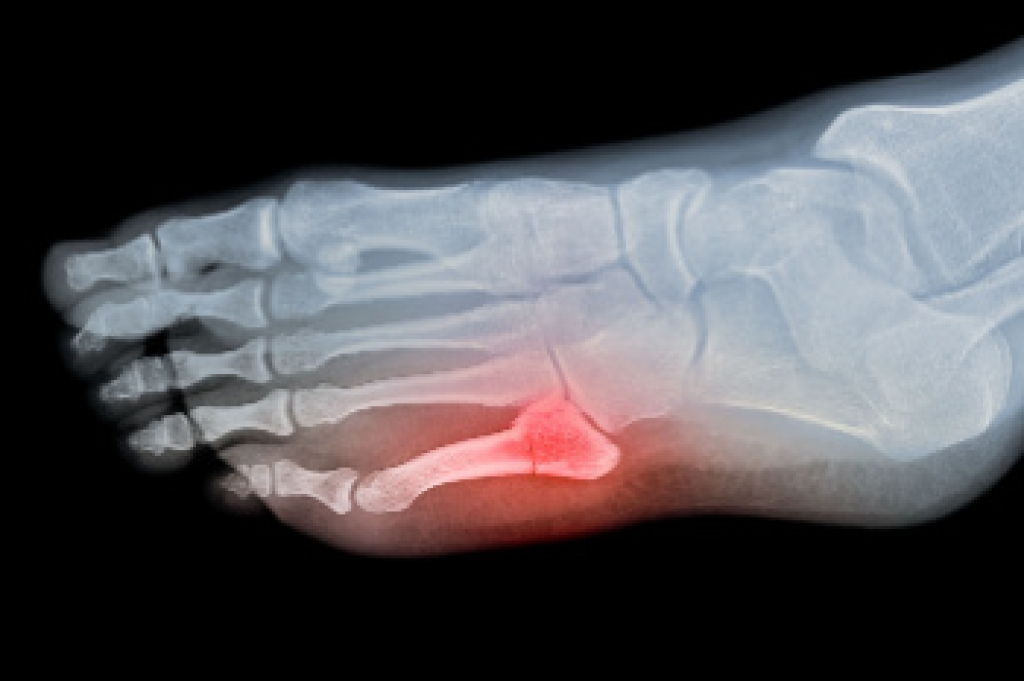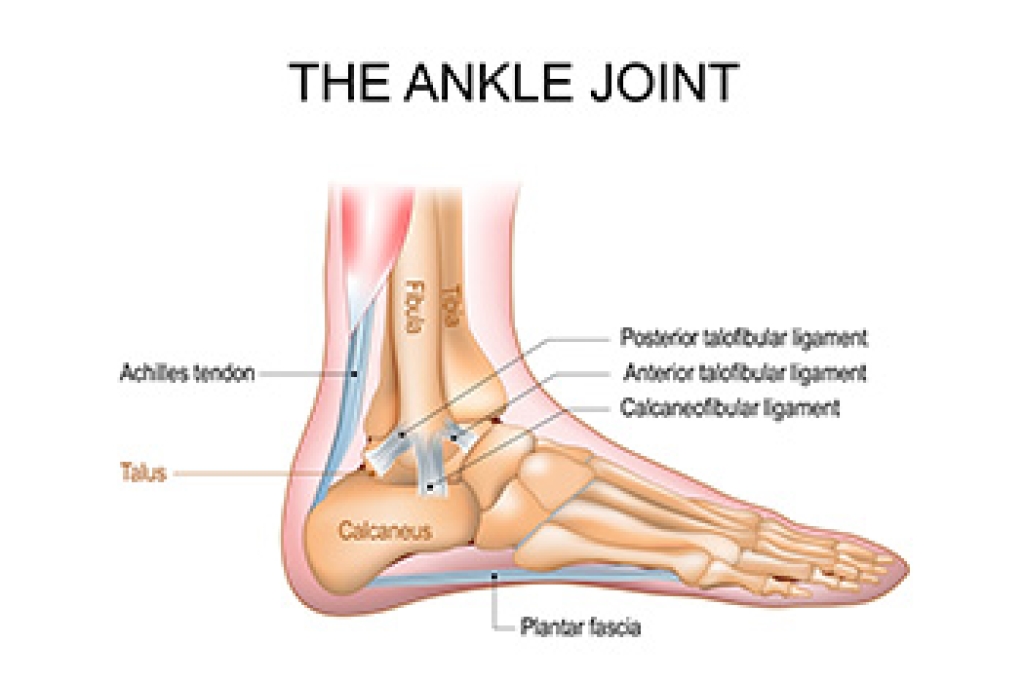
A fracture of the 5th metatarsal, the long bone on the outside of the foot that connects to the little toe, can occur in several locations and patterns. One common type is an avulsion fracture, where a tendon or ligament pulls off a small piece of bone near the base of the metatarsal. Another type is a Jones fracture, which occurs slightly farther along the base, and is known for slower healing due to limited blood flow in that region. Additionally, a dancer’s fracture is an oblique break through the shaft of the bone, often caused by twisting or an awkward landing. These 5th metatarsal injuries typically result in pain, swelling, bruising, and difficulty walking. Proper diagnosis with imaging is important to distinguish between the types, as each can require a different treatment approach. A podiatrist can evaluate the extent of the injury and recommend immobilization or surgery, when necessary. If you believe you may have fractured a bone in your foot, it is suggested that you schedule an appointment with a podiatrist for an exam and appropriate treatment solutions.
A broken foot requires immediate medical attention and treatment. If you need your feet checked, contact Leonard Talarico, DPM from Georgia. Our doctor can provide the care you need to keep you pain-free and on your feet.
Broken Foot Causes, Symptoms, and Treatment
A broken foot is caused by one of the bones in the foot typically breaking when bended, crushed, or stretched beyond its natural capabilities. Usually the location of the fracture indicates how the break occurred, whether it was through an object, fall, or any other type of injury.
Common Symptoms of Broken Feet:
- Bruising
- Pain
- Redness
- Swelling
- Blue in color
- Numbness
- Cold
- Misshapen
- Cuts
- Deformities
Those that suspect they have a broken foot shoot seek urgent medical attention where a medical professional could diagnose the severity.
Treatment for broken bones varies depending on the cause, severity and location. Some will require the use of splints, casts or crutches while others could even involve surgery to repair the broken bones. Personal care includes the use of ice and keeping the foot stabilized and elevated.
If you have any questions, please feel free to contact our office located in Pooler, GA . We offer the newest diagnostic and treatment technologies for all your foot care needs.



